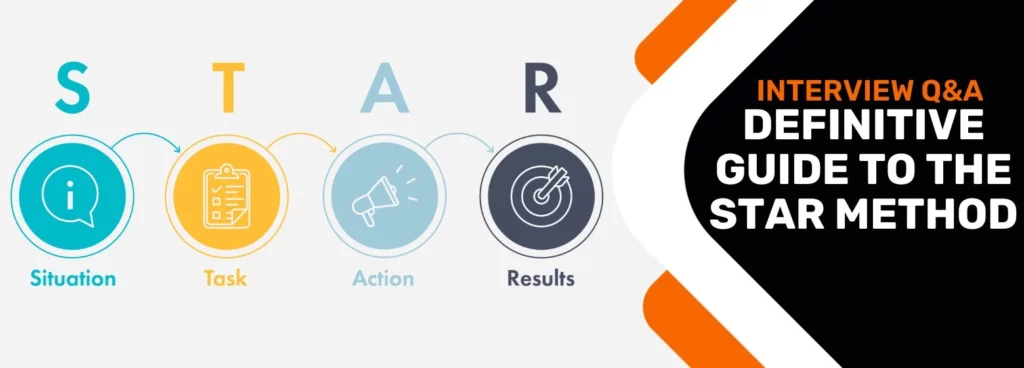When Is The Right Time To Quit Your Job?

Earlier, people would stay at a job for a lifetime, retiring in their first job itself. However, it is a norm these days to change positions to jobs every couple of years.
But sometimes, there can be strong reasons for you to quit a job you just started or even stay there for decades. You may wonder whether it is better to stay in one job for a long time or should you quit a job that is hampering your career growth immediately. Certainly, there are consequences to every action but if handled tactically, they can work to your advantage.
1. The Ideal Time To Stay At A Job
Experts suggest, for your resume’s sake you should not quit a job you just started for at least 2 years. A company invests a lot of time and money to find the right candidate. Thus, job hopping on your resume will make the employers skeptical about your employability and might refrain from hiring you. Moreover, 2 years is the right enough time to enhance and learn new skills and use them in a new role.
But what would you do if the job does not match your expectations and has little to no prospects for you? The amount of time one spends at a single workplace is likely decided by their professional plans, the working environment, and career growth opportunities available in their company. Thus, if your current position is not promising enough, offers no promotions or lateral moves and does more harm to your skills than good, it is time to bid goodbye to this role even if it means leaving the job within the first year.
2. What Happens When You Quit A Job Within The First Year?
The common adage is that quitting a job within a year of joining becomes a red flag on your resume. However, the times are changing and employers today are more open and they understand the fact that employees also have their expectations from the company, which when unfulfilled, will result in employees finding a better opportunity. You should convey the genuine reason for you quitting a job within a year, whether it was because of your manager, lack of growth opportunity, getting an offer in your dream company, or even a personal issue.
Nevertheless, there always has to be a balance. While a fresh graduate with short tenure may not be too much of an issue to an employer, an experienced professional who quits too many jobs too soon might raise a red flag for prospective employers.
They definitely have more expectations from experienced employees than freshers and would prefer to hire someone who seems more reliable and is likely to stay for a longer tenure.
But when you are stuck in a situation where quitting seems the only option, it is best to secure a job before you quit to avoid any employment gap in your resume.
3. How To Explain Frequent Job Changes?
While job hopping certainly is not a promising trait on your resume, explaining the right reason for a job change to the recruiter will let you stay a strong contender for the role. Below are a few points to consider as you explain your frequent job changes to the potential employer:
Focus on your skills and experience acquired at work
If someone ended up in a job that did not meet their expectations, it is likely for them to quit. If such was the case with you, explain the exact reason why you left your job. For instance, maybe you were hired for a software developer’s job but the work involved mostly testing. Focus on how this was doing more harm than good to your skills and career growth.
Be authentic and positive
Be honest with the recruiter on why you left the job too soon. However, make sure that this sounds positive and goes in your stride. For instance, it is okay to leave an organization with a bad culture or where the company values do not align with you. It is also okay to leave a job due to personal emergencies, health issues etc.
Talk about your career goals
Today’s recruiters understand that goals are important for employees and that they would rather switch their job than stay at a place with no career progression. During your discussion, it is best to focus on your career goals, why they are important to you, what you can bring to the workplace based on your experience. You should also convince the hiring manager how your goals align with their company’s goals which encouraged you to apply for this position.
4. Potential Risks Of Overstaying In A Job
Staying in a job for too long might have the same negative impact on your CV as not staying in a position long enough. When a person works in the same role at the same organization for more than five years with little or no change in job title or responsibilities, this is known as job clinging. For some jobs, especially for senior roles, job clinging may be a sign of stability and reliability; while some employers may not see it as a healthy sign.
Staying stagnant with the same responsibilities for years can give the impression that you lack the motivation to succeed in your career. Employers may believe that you lack the flexibility, open-mindedness and the ability to come out of your comfort zone which are all necessary for success in a new position. Moreover, overstaying at a job could hurt your skillset, market worth and CV. Especially in the fast-paced and volatile tech industry, you need to stay updated with the latest skills and knowledge. Unless your current employer provides a challenging and thriving environment, it is best to upscale yourself by joining a different company to gain new perspectives and exposure to new domains and skills.
Of course, there can be exceptions to this. For example, you work in a prominent company that has ample growth opportunities, global roles, tempting increments, very good benefits and wonderful work culture- why would you really want to leave!
5. Things To Consider When Looking For A New Job
When you are sure you want to quit, you should simultaneously start looking for a new job. Searching for a job while still employed prevents you from any undue pressure and improves your chances of employment.
If you are fresher, begin by discovering your interest. Start looking for openings and keep yourself updated with relevant skills. Reach out to a mentor and create a career development plan.
If you are experienced, take your time in finding the right role and do not rush to get into a new position for the sake of running away from your current situation. If you decide in a haste, there are a high number of chances of getting into a similar job. The last thing you would want is to make the same mistakes again that you made during the last job search. Figure out whether you would want to join a startup or a MNC, a product or a service company. Based on that, begin your preparation and job hunting.
While shorter tenures and frequent switches aren’t healthy traits, there is no point staying in a job where your growth is stagnant and skills aren’t utilized to their full potential. Also, if you suffer from an unhealthy work culture that affects your physical and mental health, you should know it is time to quit your job and find a new one. The only catch is that you should be able to justify the switches and short stays at jobs and prove that you will be a valuable resource for the potential employer.
Backend Technology Interview Questions
C Programming Language Interview Questions | PHP Interview Questions | .NET Core Interview Questions | NumPy Interview Questions | API Interview Questions | FastAPI Python Web Framework | Java Exception Handling Interview Questions | OOPs Interview Questions and Answers | Java Collections Interview Questions | System Design Interview Questions | Data Structure Concepts | Node.js Interview Questions | Django Interview Questions | React Interview Questions | Microservices Interview Questions | Key Backend Development Skills | Data Science Interview Questions | Python Interview Questions | Java Spring Framework Interview Questions | Spring Boot Interview Questions.
Frontend Technology Interview Questions
HTML Interview Questions | Angular Interview Questions | JavaScript Interview Questions | CSS Interview Questions.
Database Interview Questions
SQL Interview Questions | PostgreSQL Interview Questions | MongoDB Interview Questions | MySQL Interview Questions | DBMS Interview Questions.
Cloud Interview Questions
AWS Lambda Interview Questions | Azure Interview Questions | Cloud Computing Interview Questions | AWS Interview Questions.
Quality Assurance Interview Questions
Moving from Manual Testing to Automated Testing | Selenium Interview Questions | Automation Testing Interview Questions.
DevOps and Cyber Security Interview Questions
DevOps Interview Questions | How to Prevent Cyber Security Attacks | Guide to Ethical Hacking | Network Security Interview Questions.
Design Product Interview Questions
Product Manager Interview Questions | UX Designer Interview Questions.
Interview Preparation Tips
Strength and Weakness Interview Questions | I Accepted a Job Offer But Got Another Interview | Preparation Tips For the Virtual Technical Interview | 7 Tips to Improve Your GitHub Profile to Land a Job | Software Engineer Career Opportunities in Singapore | What can you expect during a whiteboard interview | How To Write A Resignation Letter | Recommendation Letter Templates and Tips.
Quick Links
Practice Skills | Best Tech Recruitment Agency in Singapore, India | Graduate Hiring | HackerTrail Litmus | Scout - Sourcing Top Tech Talent in ONE Minute | About HackerTrail | Careers | Job Openings.





